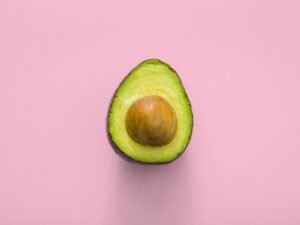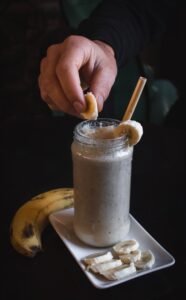How To Eat Before, After And In-Between Workouts: Basic Nutrition Guidelines To Maximize Your Results
In future installments, we’ll get deeper into what’s most healthy to eat, and we’ll lengthen the list of what you should avoid. We’ll go into grams per kilogram for your macros, and all those fun intricacies.
Let’s start with the basics though – you can go a long way just by understanding these simple concepts and taking them into account when you decide what to eat throughout your day.
IMPORTANCE OF NUTRITION

You can go crazy in the gym, but what you eat before, during, and after your workout will be the difference between meeting your goals and falling short.
Your nutrition planning should be focused on two key points: You have to supply your body with the right energy sources to get the most out of a workout. Then you have to refuel after the workout (continuously), which is when your muscles are growing.
A successful nutrition plan will supply all of the right nutrients at all of the right times. The body uses the nutrients you feed it to adapt to the work it’s done and prepare itself for the next challenge.
You’ll need to replenish depleted energy sources with carbs, repair damaged muscle and develop new muscle tissue with protein, and rehydrate with lots of fluids.
What do you need?
We’re focused on the big picture here:
To fuel your body properly, you need sufficient quantities of the three macronutrients: quality carbohydrates for energy, lean protein to repair and build your muscles, and healthy fats for low-intensity energy sources and support for healthy bodily functions.
And of course, don’t forget to hydrate adequately, and throughout the day.
Yes, you need carbs –
Regardless of your goals, healthy carbohydrates are an essential source of energy. Carbohydrates are your body’s preferred fuel source. They also aid in fat-burning processes.
Of course, we’re not talking about stuffing yourself with everything in the bakery. You want all the carbs you consume to be used as an immediate energy source or to replenish your depleted levels – you don’t want them to be stored as fat. Eat most of your carbs shortly before and after your workouts, and choose healthy, complex carbs like brown rice, whole grains, fruits & vegetables.
Protein is still king –
Protein is the building block upon which muscles repair and build, and the way cells to transport oxygen and nutrients to the muscles. It also provides the essential amino acids that help an array of processes inside the body.
Lean animal proteins such as poultry and fish are the healthiest and most complete protein sources. Soybeans, nuts, eggs, greek yogurt and cottage cheese are great as well, especially as a snack.
Fat:

Don’t fall into the trap of equating the fat in your diet with the fat you’re trying to lose. You need (the right kinds of) fat in your diet, such as what you get from nuts, fish, avocados. These fats provide energy and help your body absorb nutrients. Avoid saturated and trans fats, such as processed meats, fried foods, etc (the list only gets more obvious as it goes on)
And we hate to break it to you, but one of the worst fat sources is alcohol, which has no redeeming value and can also slow the hormones that build muscle.
when to eat what
before the WORKOUT
Goals: sustain energy, boost performance, preserve muscle mass and speed recovery
Excuse us for stating the obvious, but even if it’s first thing in the morning, you should never have a full workout on an empty stomach.
For a morning workout, choose fast-digesting carbohydrates such as white bread, white rice, bananas, watermelon, potatoes, instant oatmeal, corn flakes, and bagels. These supply immediate energy needs to a system depleted from a (hopefully) full-night’s sleep.
Before a workout is the time to have a low fat meal. Fats take time to digest, so they’ll still be sitting in your system, and can leave you feeling sluggish or even nauseous during a workout.
Timing is key here, because we’re focused on how everything is breaking down. If you eat 2-4 hours before the workout, it can be a full meal. Choose a smaller meal if it’s closer to your workout. If it’s less than an hour before your workout, try to make it a shake or smoothie.

after the WORKOUT
Goals: Recover, rehydrate, refuel, build muscle
After a good workout, muscles are primed and ready to be refueled. Preferably within an hour. Do your best to have at least a snack or smoothie immediately afterwards; a larger meal can be saved for up to a 3 hour window.
Your body’s first priority is restoring balance and replenishing depleted energy stores, not your muscles. Consume fast-digesting carbohydrates to do that work, and in the process you’ll make sure the protein gets put to use the way you want it to be.
And of course, you need ample amounts of lean protein to flow to your muscles, which will be ready and waiting. Ideally animal sources, which will also deliver the essential amino acids that are crucial in this post-workout window.
WHAT ABOUT DURING THE WORKOUT?
We’ll keep it simple: unless your workout is lasting well over an hour, it’s not necessary to consume anything except water. But if you’re going to, the purpose is essentially the same as your pre-workout fueling – to give your body an energy source to tap into.
For this purpose, BCAA or carbohydrate-based intra-workout supplements are fine. And water and electrolytes are always beneficial.
AND REST DAYS?
Resist the temptation to cut back on calories on a rest day. Your body is still recovering and repairing your muscles from the work you’ve put it through. Keep your diet mostly the same, especially your protein intake.
THE last word

Be sure to fuel up. Even if you’re trying to lose weight. Your body needs the energy and nutrients you get from well-timed meals and snacks. If you skip fuel, the weight you’ll lose won’t be the kind you want to lose and it won’t stay off. Instead of burning fat, you’ll lose muscle mass, bone density, energy, and women can even end up with menstrual issues. Keep yourself filled and fueled with nutrient-dense calories and you’ll be well on the road to the results you want.
And remember, it’s not about perfection or obsessive counting. Whatever your lifestyle is, you can craft a nutrition plan that gives your body what it needs.

